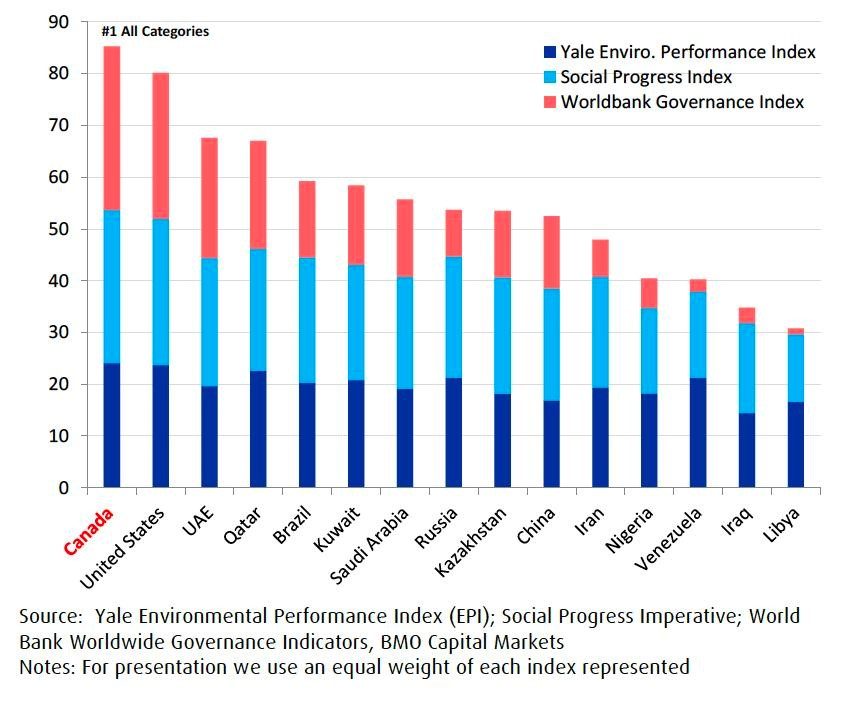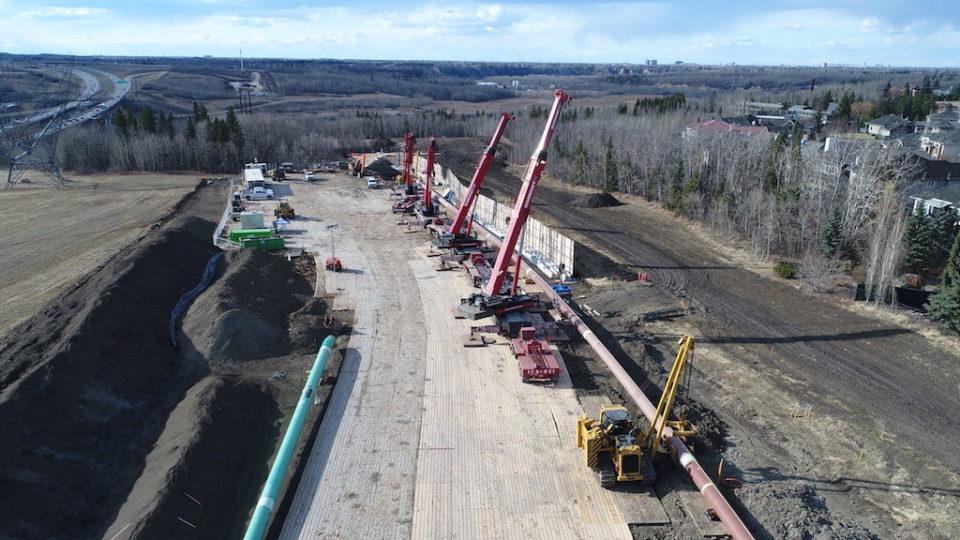Construction of the Trans Mountain Expansion Project (TMX) is coming at the perfect time for Canada. Here are seven reasons why:
Jobs, jobs, jobs
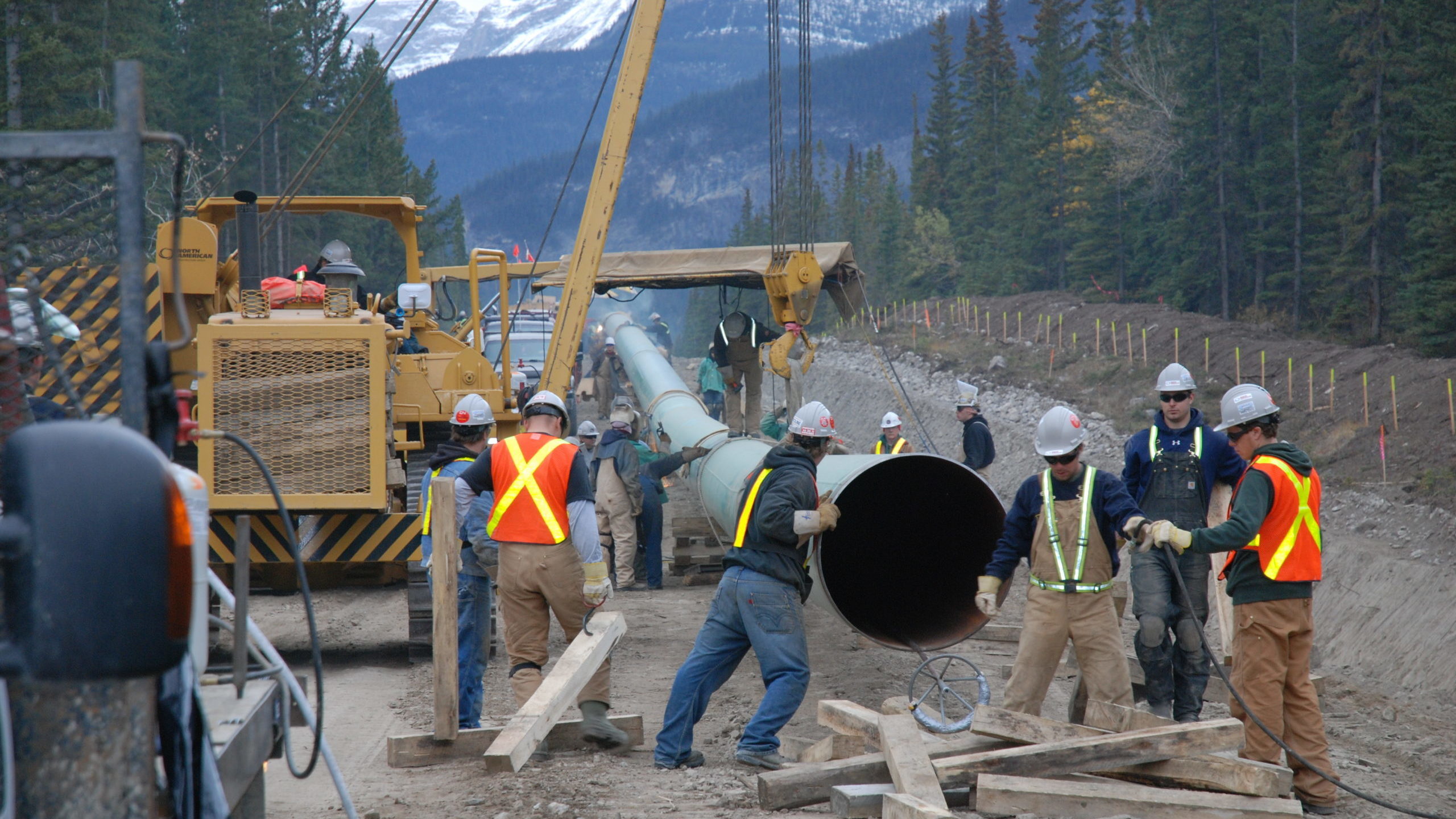
Jobs are being created by TMX while elsewhere in Canada they have been lost as a result of the COVID-19 pandemic. Many of these jobs exist now as part of the construction that is underway and others will be created as the project moves closer to start-up, which is expected by the end of 2022.
Trans Mountain says that to date, the project and its contractors have hired more than 6,590 people, more than 600 of whom are Indigenous.
As of July 31, 2020, there were approximately 5,600 people working on the project. Approximately 440 direct jobs are expected to support operations each year over the first 20 years.
Including direct, indirect and induced jobs, Trans Mountain expects that during construction the total workforce will reach the equivalent of 15,000 jobs per year, followed by the equivalent of a further 37,000 jobs per year of operations.
In its 2019 reconsidered public interest determination for TMX, the Canada Energy Regulator (CER) said the use of input-output models to calculate indirect and induced jobs is an acceptable methodology for estimating a project’s potential economic impacts.
Market diversification
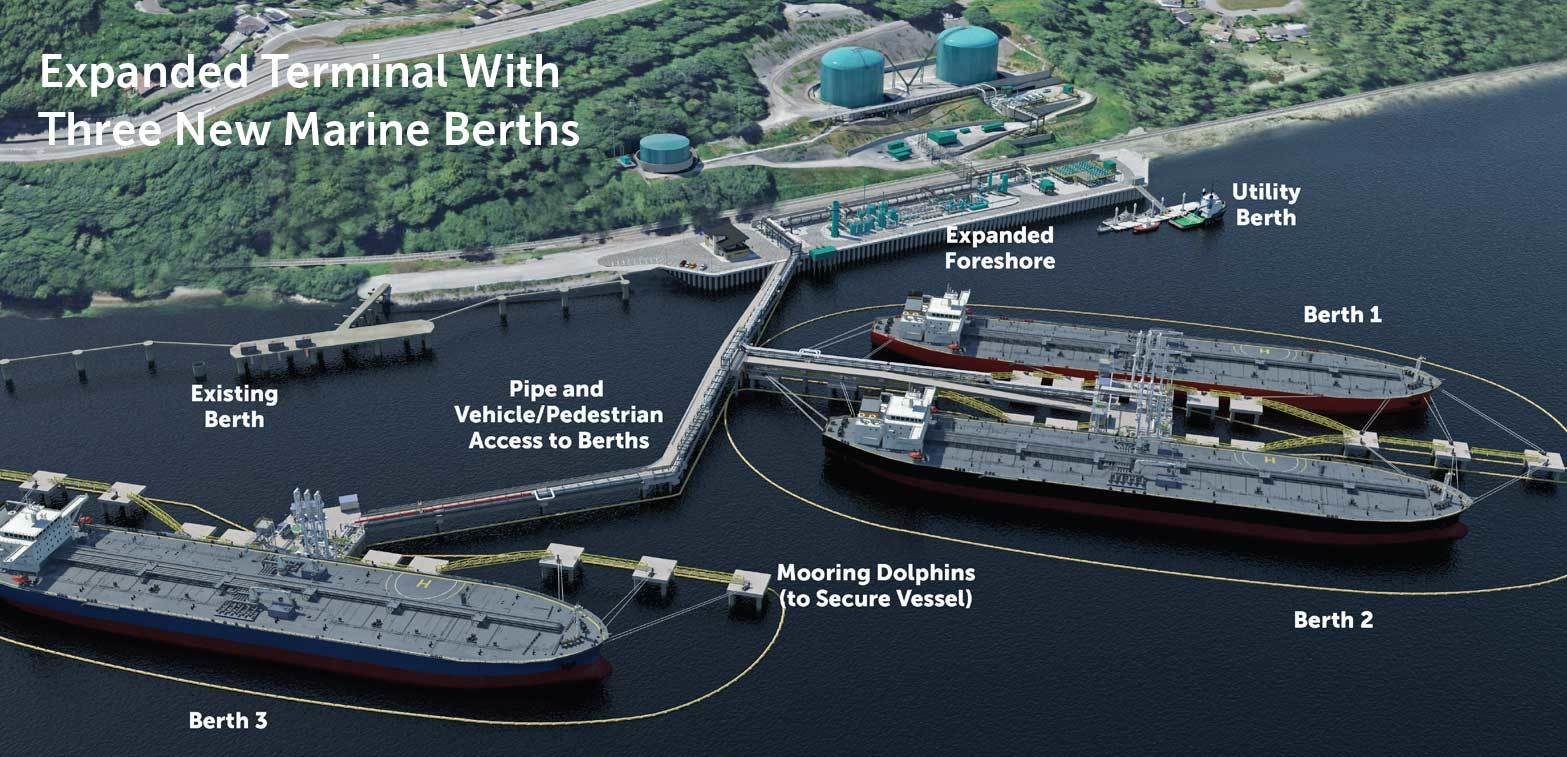
Right now, more than 95 per cent of Canadian crude oil exports go to the United States, with a small volume exported to other jurisdictions through the existing Trans Mountain system.
By expanding the capacity to export Canadian crude from the West Coast, the key benefit provided by TMX is more customer options for Canadian oil producers. The CER found this will help shippers manage risk and will likely reduce the discount that Canadian crude prices receive relative to similar heavy crudes that are globally traded — effectively, ensuring producers and governments obtain the highest value for their petroleum resources.
According to the CER report, the primary markets for crude oil shipped on the expanded Trans Mountain Pipeline are the Burnaby/Puget Sound area in B.C./Washington State and Northeast Asia, with secondary markets in California and Hawaii.
The existing Trans Mountain system has been overbooked on a regular basis for the last decade. The expansion project has binding 15 to 20 year commercial agreements in place with shippers that remain committed to utilizing the space.
Government revenues
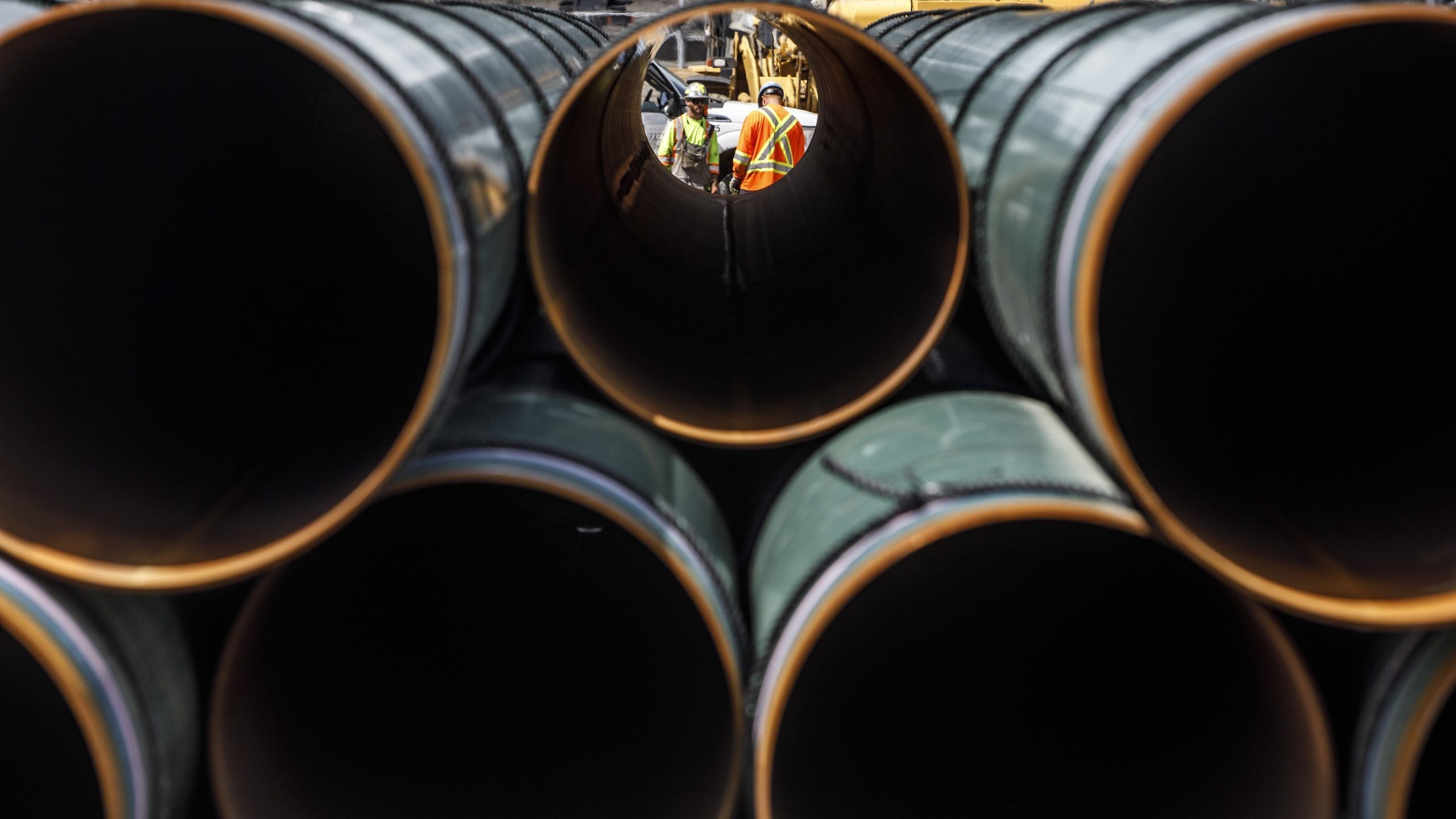
Federal and provincial governments will benefit substantially from TMX, receiving revenues that can be used for public services such as health care, education and infrastructure.
The most recent available assessment of project benefits is a January 2016 study by the Conference Board of Canada, which the CER used in its 2019 reconsidered public interest determination. Conference Board researchers found that a combined $46.7 billion in royalties and taxes will be paid over construction and the first 20 years of operations of the expanded pipeline. This includes $19.4 billion in Alberta, $5.7 billion in British Columbia and $21.6 billion shared by the rest of Canada.
The CER said that while there is uncertainty in the economic impacts of the project, the expanded pipeline will contribute to producers realizing full market value pricing for Canadian crude, a long-term benefit for shippers and market participants.
Through the peaks and valleys of oil and gas markets, between 2000 and 2018 Canada’s oil and gas industry contributed at least $493 billion to federal and provincial revenues.
Benefits for Indigenous communities
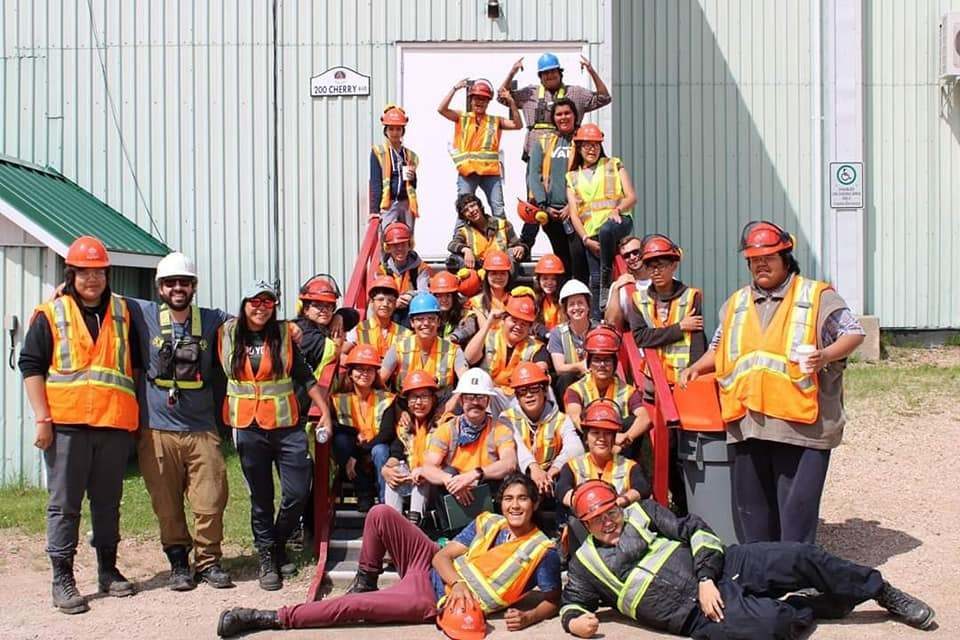
Trans Mountain says the primary objective of its engagement with impacted Indigenous communities is to maximize economic opportunities including contracting, employment and skills training.
As of February 7, 2020, the project has signed 59 commercial agreements with Indigenous groups (14 in Alberta and 45 in British Columbia) worth over $500 million. The agreements are confidential and unique to each community, but generally include provisions relating to environmental protection, cultural and archeological monitoring, and can include pipeline construction education and jobs training, skills enhancement, business opportunities or improved community services and infrastructure.
The agreements in place have led to more than $275 million in project procurement contracts as of the end of February 2020, Trans Mountain says.
One example of benefits to Indigenous communities from the project is the new Kingsvale Electricity Transmission Line, which earlier this year became majority owned by the Lower Nicola Indian Band, through an agreement with Valard Construction and Trans Mountain. It is the first electricity transmission line to be majority-owned, operated, maintained and financed by an Indigenous group in Canada.
The 138-kV transmission line connects to BC Hydro’s distribution line to provide additional power to Trans Mountain’s existing Kingsvale pump station, as well as to a new Kingsvale pump station, as part of the expansion project.
There may be significantly more benefits to Indigenous communities in the future. The Government of Canada currently has a multi-step engagement process underway considering how Indigenous communities can take part in ownership of the expanded Trans Mountain project.
Marine safety enhancements
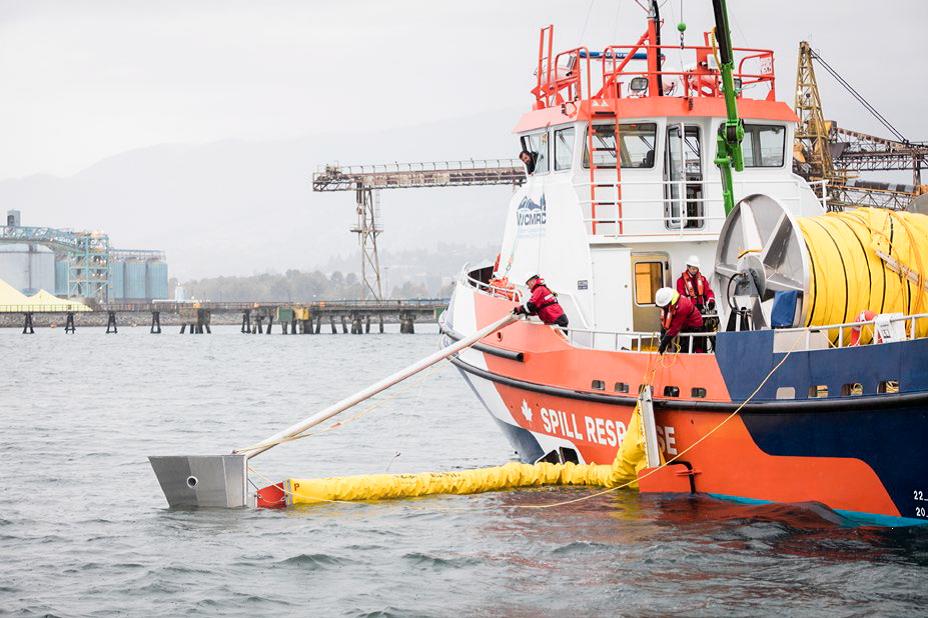
The Trans Mountain Expansion Project is facilitating B.C.’s largest-ever expansion of spill response personnel and equipment on the South Coast, through a $150-million investment in Western Canada Marine Response Corporation (WCMRC).
The funding will double WCMRC’s current spill response fleet to 88 vessels, create eight new spill-response bases, and add 120 employees. Trans Mountain says these assets will be available to respond to any spill incident along the BC southern marine shipping route, improving safety for industrial shippers as well as residential, commercial and other users.
Legacy projects in communities along the route

Communities along the route of the Trans Mountain Expansion Project will see lasting socio-economic benefits, in addition to annual property taxes and land access agreements. Trans Mountain has committed approximately $11.7 million to 19 communities in Alberta and B.C. to support projects ranging from improving parks and trails and revitalizing a golf course to education funding and water system upgrades.
One example is the small community of Clearwater, B.C., which has been hit hard by the downturn in the forestry industry. In addition to a $390,000 community benefits agreement with Trans Mountain, the project recently announced it will invest $3.1 million to fast-track necessary infrastructure upgrades that were identified in Clearwater’s 2013 30-year Infrastructure Master Plan. This will allow the community to improve its industrial and municipal water services and continue to grow.
Delivering responsibly-produced energy

TMX will help Canadian oil producers satisfy global demand, which hasn’t really changed despite the impacts of the COVID-19 pandemic. According to analysts with IHS Markit, demand has already bounced back to 89 per cent of pre-COVID levels and is expected to return to up to 95 per cent through the first quarter of 2021.
The International Energy Agency forecasts that based on the world’s current trajectory, between 2018 and 2040 oil supply will be increased by approximately 9 per cent, to 4.9 billion tonnes of oil equivalent. Although the IEA forecasts that with more aggressive climate action, by 2040 oil supply will be decreased by 32 per cent, that still leaves 3.0 billion tonnes of supply for producers to meet.
TMX will help Canadian oil producers fill this demand, instead of ceding market share to oil-producing jurisdictions like Russia and the OPEC countries that are not as transparent or focused on environmental, social and governance (ESG) performance. In addition to greenhouse gas emissions, ESG metrics include criteria such as water use, greenhouse gas emissions, worker safety, community investment, representation of women, Indigenous people and visible minorities, and board diversity.
Research by BMO Capital Markets ranks Canada number one in all ESG categories among the world’s top oil and gas reserve holders.
